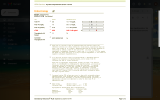BijouK
Registered
- Joined
- Apr 24, 2022
- Messages
- 29
Nyxie Age 11 Female Unspayed White bully mix/Dogo? 45lbs BEAM great although she is content sleeping a lot too.
Same as Nitro's IBD/S vegan diet to avoid cross contamination. Some Kangaroo. Plenty of organic human foods & superfoods. Org peanut butter in Kong.
Rabies 3 yrs ago (waiting for titers) Toxic free home and living in the woods with the exception of carpeting.
1-2 drops iodine starting this week, MyCommunity Host Defense, had Doxycycline for Lyme's June 2021.
Requested full panel thyroid and found looks good except cTSH 0.56 Please see attached.
She gets cold very easily since getting Lyme's Does not jump up well anymore.Her ability to jump on the bed or into the car has changed quite a bit and not returned since Lyme's. Not sure if it's age/arthritis/weight etc. Tail gland is slightly inflamed.
I have Hashimoto's and following Dr David Brownstein's book using iodine therapy. It's helped me a lot. I've begun adding 1-2 drops to Nyxies food.
I'd like to hear if anyone else uses iodine and avoid prescriptions. My last dog was same breed, severely vaccine injured and on meds. I'm having trouble giving her small doses without food and also unsure of dosage for her weight. Please advise. Thank you
@DrJeff we have an appt on Oct 3rd but just trying to understand what I can do this week etc.

Same as Nitro's IBD/S vegan diet to avoid cross contamination. Some Kangaroo. Plenty of organic human foods & superfoods. Org peanut butter in Kong.
Rabies 3 yrs ago (waiting for titers) Toxic free home and living in the woods with the exception of carpeting.
1-2 drops iodine starting this week, MyCommunity Host Defense, had Doxycycline for Lyme's June 2021.
Requested full panel thyroid and found looks good except cTSH 0.56 Please see attached.
She gets cold very easily since getting Lyme's Does not jump up well anymore.Her ability to jump on the bed or into the car has changed quite a bit and not returned since Lyme's. Not sure if it's age/arthritis/weight etc. Tail gland is slightly inflamed.
I have Hashimoto's and following Dr David Brownstein's book using iodine therapy. It's helped me a lot. I've begun adding 1-2 drops to Nyxies food.
I'd like to hear if anyone else uses iodine and avoid prescriptions. My last dog was same breed, severely vaccine injured and on meds. I'm having trouble giving her small doses without food and also unsure of dosage for her weight. Please advise. Thank you
@DrJeff we have an appt on Oct 3rd but just trying to understand what I can do this week etc.

